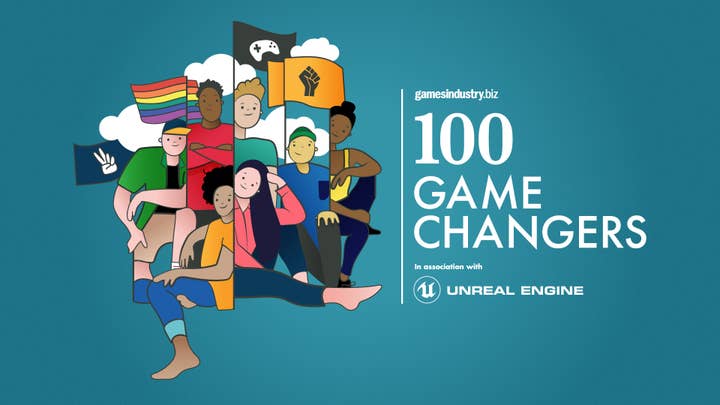GI 100 | Game Changers -- Part Three
Game Changers continues with creating a database of accessible games, building roads into tech for Indigenous Australians, and documenting the work of Black women in the industry
As 2020 draws to a close, many will reflect on 12 months defined by stress, upheaval, and the urgent need to confront some difficult truths about the way the games industry operates, and the myriad ways it can be a better and more inclusive place.
But just as that process of self-examination is necessary, so too is recognition for those already working to solve those problems. In this GI 100 series we will profile 100 individuals and organisations making progress in vital areas like diversity, accessibility, charity, mental health, progressive politics, lifting emerging markets, uniting communities, and more -- people whose stories can show us how this industry can be that better and more inclusive place.
Below are the third group of ten Game Changers, with ten more to follow every working day until December 18. The project is sponsored by Unreal Engine -- you can read more about it, and find links to all ten parts, here.
Sergey Brui, Vizor Interactive
There are hundreds of large and successful companies in this industry, but not many of them remain committed to the regions in which they started, and support those in need in their local communities.
"There are plenty of international funds and government activities, but nobody knows the details better than the locals"
Sergey Brui
Vizor Interactive is an example of one that has done both. Founded in 2004 in Minsk, Vizor was among the first successful companies in the Belarussian industry. Today, it has grown to more than 500 people, and its co-founder Sergey Brui was put forward for using that success to make a difference.
According to Brui, Vizor has been actively working with charities for many years, and in that time it became clear that it could make the biggest impact with organisations that had technology at the core of their mission.
"Our main project back then was equipping orphanages in Minsk with tech classes and hiring professionals that could teach kids basic computer knowledge, entry level robotics, and so on," he says. "We've covered most of Minsk together with our colleagues from Belka Games, who joined us in this matter.
"Now we build more advanced tech classes in schools outside of the capital -- mostly in the countryside and small towns... Robotics, 3D printing and modelling, 2D illustration, entry-level programming, game development. Our employees are heavily involved, reading lectures, providing materials and so on. I just love this project, and we look forward to expanding into more regions and schools."
More recently, Vizor expanded the scope of its education programmes, holding theatre classes across Belarus and Russia, and bringing a select group of students to perform onstage in Minsk and Moscow. This year, it was held in an online format due to the impact of COVID-19, but Brui is excited to return to in-person performances soon.
"It is both about appreciating the work of previous generations and investing into your company's future -- your kids' futures," Brui says of his belief in giving back to the community. "There are plenty of international funds and government activities, which is amazing, but nobody knows the details better than the locals. Nobody is on top of things more than companies who work on the tech edge in competitive markets that change so rapidly."
Alayna Cole, Represent Me
The last decade has seen the emergence of many organisations challenging the status quo of diversity representation in games. Represent Me is one of them, the result of years of hard work from Alayna Cole.
In addition to being Represent Me's managing director, Cole is a producer at Sledgehammer Games and co-chair of the International Game Developer Association's LGBTQ+ special interest group. When Cole started her not-for-profit research and consultancy organisation in May 2016, it was named Queerly Represent Me, and consisted of a list of games featuring LGBTQ+ representation that she was exploring for their own research.
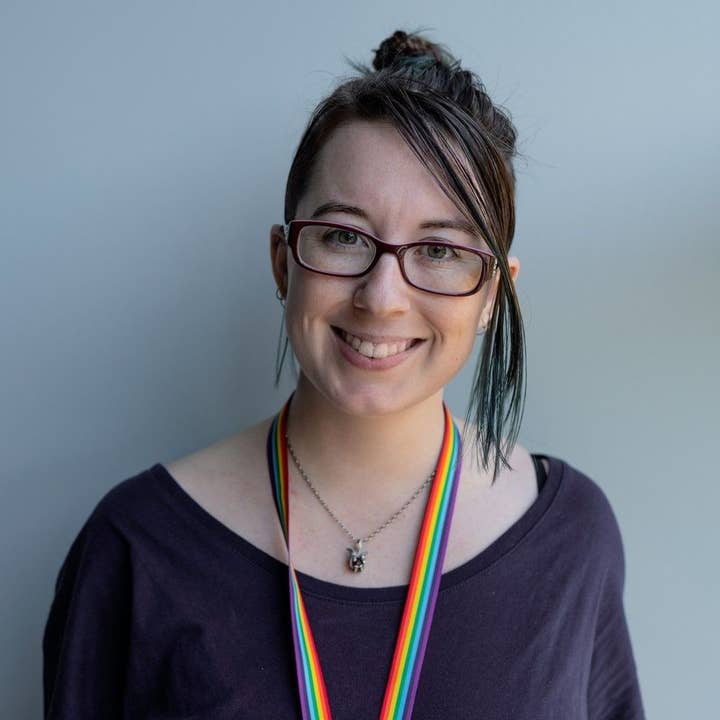
"The support for the project was bigger than I could have imagined, and it made me aware of how hungry marginalised people are for more games, more research, and more resources," she says. "This is the knowledge that helped us grow our team of employees and volunteers, tackle an array of projects, and become incorporated as a not-for-profit."
The charity was renamed Represent Me this year, to reflect the evolution of its mission: diversity work has to be intersectional, and the organisation wanted to be as accessible as possible.
"It felt unrealistic to expect anyone to come to us to discuss one form of representation and go elsewhere to discuss others," Cole says. "There is no way to work for and with the LGBTQ+ community without also considering the impacts of other facets of identity: race, culture, religion, disability, mental illness, age, class, and more."
There are three aspects to Represent Me's work. First is representation, with the organisation championing visibility of diversity in games. It gave birth to projects such as the queer games database. Second is education, which encompasses Represent Me's consultancy work.
"[We] help studios to appropriately represent diverse characters in their games, and support workplaces and events in making their physical spaces accessible and inclusive. We also create a number of resources each year to support groups that cannot afford consultancy, to give marginalised people the best chance to see themselves represented."
"There is no way to work for and with the LGBTQ+ community without also considering the impacts of other facets of identity"
Alayna Cole
The third aspect of the organisation's mission is elevation, giving opportunities to marginalised voices. Represent Me interviewed more than 100 game industry professionals to talk about representation, and regularly commissions writers from underrepresented backgrounds to pen its resources. The organisation also has travel and textbook grants for marginalised folks.
Cole is not alone in her endeavours, and she notes that Represent Me couldn't exist without its contract workers and its board of directors, which consists of Jess Zammit, Dakoda Barker, Ash McAllan, and Chad Toprak. The organisation is always on the lookout for more support, though, and like all charities, funding is where the biggest impact can be made.
"We make our resources and services as cheap as possible -- and often free -- to ensure as many people have access as possible, but this limits what we can pay our hardworking team. Everybody who works for Represent Me also has other jobs because we don't have the funding to guarantee financial security for anybody. We [also] can't support people who haven't found us, so signal boosting our projects and mission is a great way of encouraging more people to access our services."
Jon Cortazar, Relevo
Spanish indie studio Relevo has been producing games since 2009, with last year's PS4 release Treasure Rangers turning heads in particular. The game aims to promote teamwork, gender equality and inclusion, and one key character is a young boy with autism -- a concept that was important to director and founder Jon Cortazar.
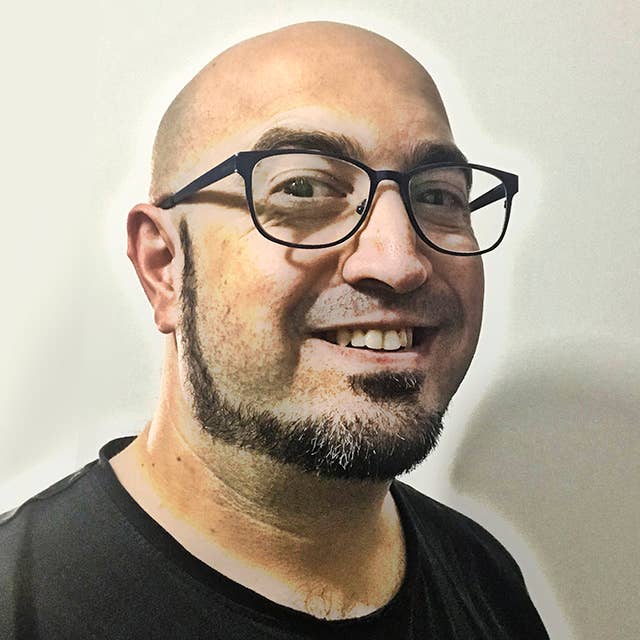
"I am a father of three, and my eldest -- a 12-year-old lad -- is a kid on the spectrum," he explains. "I wanted to do a video game -- not a 'serious game' but a fun game that everyone would like to play -- in which one playable character was a kid with autism."
The challenge was to build this into the character without text, just game mechanics. The result is Randy, a character with the power of photographic memory, the only one that can memorize the exact position of runes in order to open gates further on. Randy can't enter loud zones as he can't handle that level of stimuli, so needs the zone cleared ahead of him. Equally, he can become transfixed on something beautiful, such as butterflies, and his teammates need to make them move so Randy can regain focus.
"There are also some other non-playable elements, like the funny dancing movements Randy makes when idle, or the little toy that he always carries on his right hand to handle stress. All in all, a fun exploration game with a soul, not explained by boring text but using game mechanics for the player to understand -- because that's what inclusion is all about."
Relevo received support from Autismo España, a group of more than 70 associations that forms Spain's biggest confederation on autism. It also gained the attention of Sony Interactive Entertainment, which added the game to its PlayStation Talents program -- an initiative that promotes indie games. Cortazar is particularly thankful to two people: PlayStation Iberia's new business director Roberto Yeste, and former PlayStation indie champion Shahid Ahmad.
"Media tends to present autistic people as lacking social skills but really successful in their careers. This is a romantic approach"
Jon Cortazar
Cortazar is keen to see more developers not only explore autism in games, but also improve how it's depicted: "Media always tends to present autistic people as those lacking social skills but really successful in their careers. This is quite a romantic approach, as multiple kinds of ASD disorders present higher handicaps. Asperger's is the one most highlighted in the media, but in this case, the goal was to include a non-verbal child with ASD and auditory processing disorder -- just like my eldest son.
"We can all make people closer to autistic persons by gaining awareness with products like Treasure Rangers. It's not a game for autistic persons, as they play a lot of different games... It's a title for everyone to enjoy and also understand that you can have a partner in your team with autism and still have fun on your adventures."
Jérôme Dupire, CapGame
As co-founder and president of Paris-based CapGame, Jérôme Dupire has dedicated his career for the past decade to making the games industry a more accessible place.
CapGame was created in 2013 to identify and document the assistive technologies available to people with disabilities who play games. In 2017, the organisation restructured around five core pillars: solutions, testing, R&D, consulting, and esports. This encompasses evaluating the accessibility of mainstream games, finding new solutions for better accessibility, educating and supporting health professionals, and imagining a future for esports that includes competitors with disabilities.
"Our first objectives were (and still are) to help people with disabilities to discover and use existing assistive technologies, hardware and software, that ease access to video games, and to convince people with disabilities that they are able play video games," Dupire says.
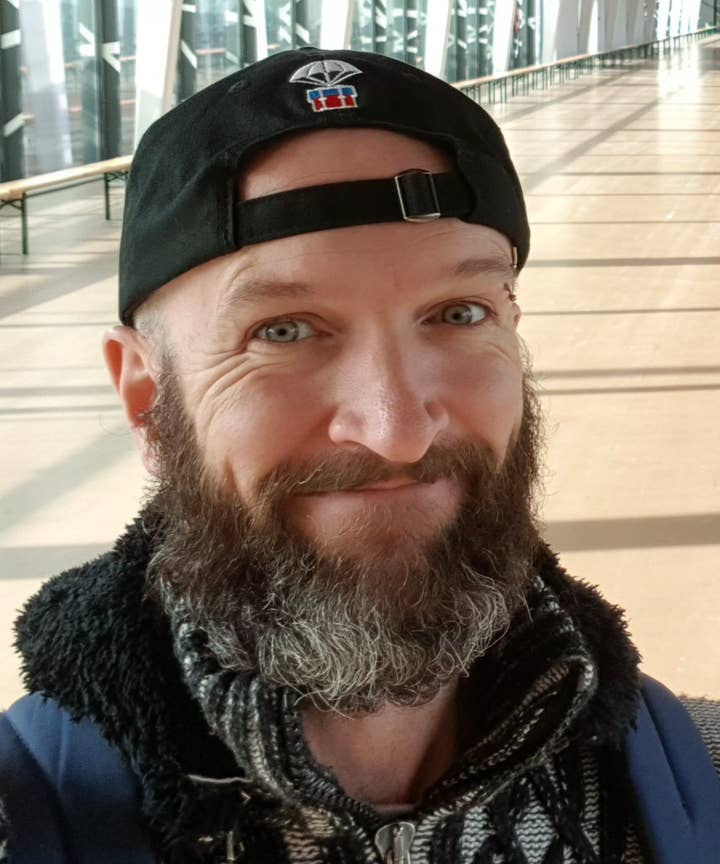
CapGame has been testing the accessibility of games since its inception -- its extensive database includes several hundred games tested for deaf and hard of hearing gamers, those with motor and physical disabilities, cognitive difficulties, and visual impairments.
"We educate people from the video game industry and students in video game schools about accessibility and inclusion," Dupire continues. "We provide experts to support developers to make their video games more accessible. In 2018, we created our inclusive esports event -- a first time ever, worldwide, as far as I know -- where people with and without disabilities could compete with/against each other. We continue to organise [this] event on an annual basis."
Dupire is also associate professor at the Conservatoire National des Arts et Métiers, where he teaches students about accessibility, prototyping, DIY, and mobile application design. As a researcher, his responsibility is also to develop and improve software for better digital accessibility and inclusion.
When asked about the key people that help him in his work, Dupire says it's people with disabilities first.
"They are experts of their condition and needs -- I need them to understand and design the more suitable and relevant things to improve their daily life," he says. "And people from the industry, to spread the word and good practices through the products and services they sell, but also into their company, by raising awareness among their employees."
Supporting the visibility of CapGame's initiatives, and sharing them within your network, is a great way to support its work. Funding also goes a long way -- CapGame is a non-profit organisation -- as does promoting the need for better video game accessibility and inclusion.
Damir Đurović, Reboot Develop
Just a decade ago, the Croatian games industry was "barely 100 professionals" employed by "a handful of studios," Damir Đurović tells us. Now? About 1,500 professionals across 60-plus studios. In ten years, Croatia became a buoyant hub for game creation, and the formation of Reboot Develop nine years ago has a lot to do with putting the country on the industry map.
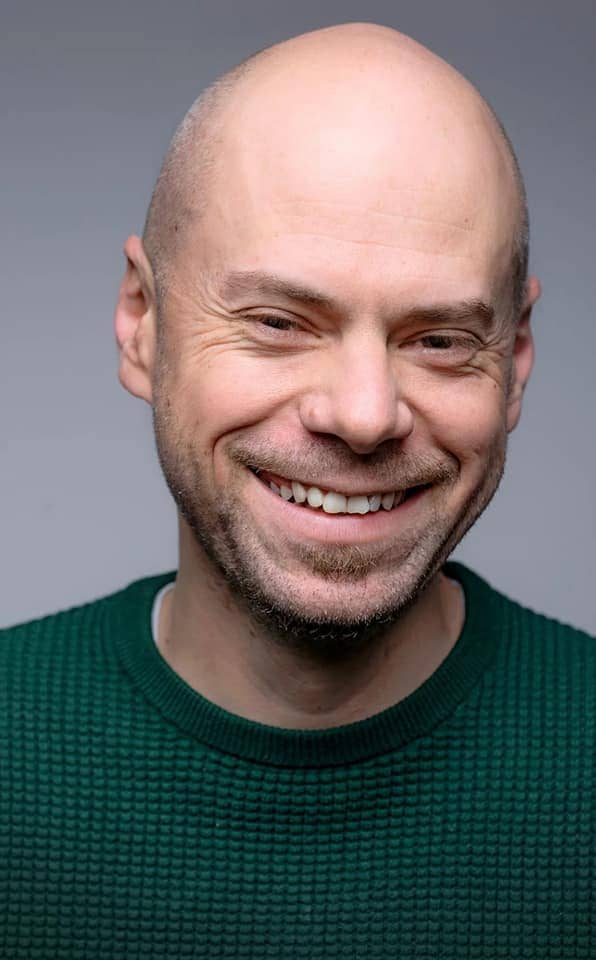
When Đurović created the games events brand, he had 15 years of experience across games media, marketing and PR. The initial goal, he explains, "was, through media, conferences, but also association and community building, to interconnect the regional games industry's ecosystem, getting [it] to recognise its own potential and steer it slowly into position where it would benefit from local studios cooperating with each other -- and in the end finding some kind of unified voice of its own.
"I would say that was one side of the [coin], the other one [being] my personal crusade into pushing as much as possible to get both the Croatian and regional [Southeast Europe] games industry the international recognition it deserved, but which it honestly did not have."
The flagship event is the Dubrovnik-based Reboot Develop Blue, which started eight years ago as a small conference with the intention of bringing the regional games industry together. It's now a landmark international games event, which shines a spotlight on the Croatian games industry. And then of course there's Reboot InfoGamer and its 90,000 attendees every year in Zagreb.
"We primarily used that event to get focus from mainstream media and the general public, but also from the government, on our national games industry," Đurović says. "It was an event that vastly helped to change the perception of the general public about what games as a medium are in Croatia, but even more about how big and rapidly expanding an industry it is."
Đurović launched several initiatives over the years as part of Reboot, including being one of the founding members of the Croatian Game Developers Association that was established six years ago -- all while building Reboot into an impactful and unique brand within the ecosystem of global games industry conferences.
"The event vastly helped to change the perception of the general public about what games as a medium are in Croatia"
Damir Đurović
With the COVID-19 pandemic putting events in jeopardy this year, supporting Đurović and the entire Reboot team's work is more crucial now than ever.
"The very unfortunate developments in the whole world during 2020 hit events the hardest and without mercy," Đurović says. "[One] way to support us is [to stand] together with us in making our industry focused on bigger and better events than ever, with a very clear highlight being on stronger financial backing through sponsorships and attendance.
"If there ever was a point in time when we, as Reboot, as an organisation that was never focused on profit, needed the industry to jump in with an even stronger and friendlier helping hand, it would be right about now."
Jörg Friedrich, Paintbucket Games
If one game had to demonstrate the power of games to create a better understanding of our culture and our past, it would be Paintbucket Games' Through the Darkest of Times.
"When we started working on the concept for Through the Darkest of Times, the UK had just been voting for Brexit, Trump had become president, and racist and totalitarian political parties and movements were getting more influence all over Europe, the world, and Germany," says co-founder and game designer Jörg Friedrich.
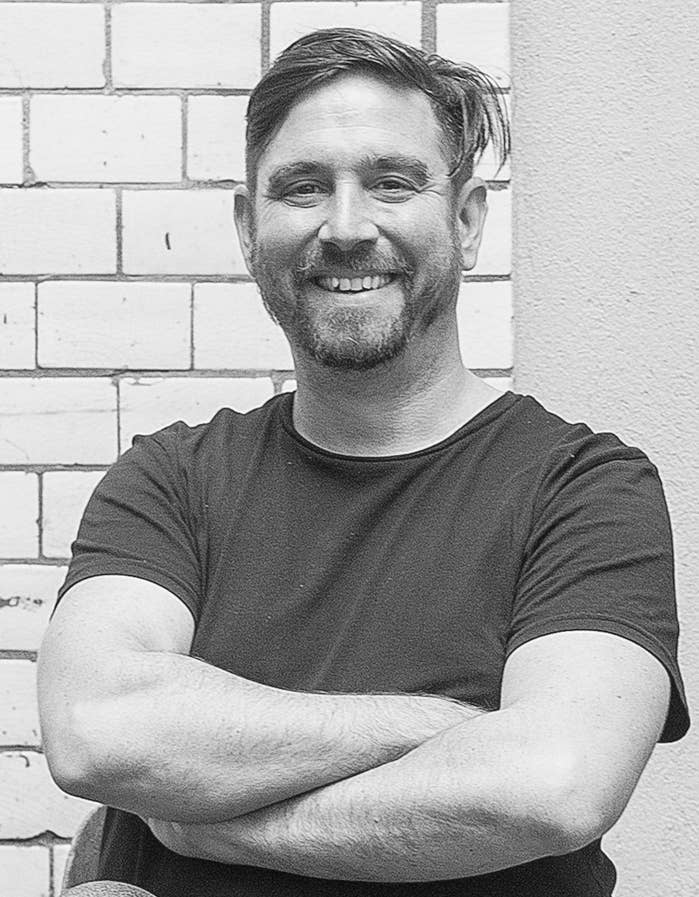
"'Never again!', referring to the Nazi era and the Holocaust, is a statement in which I was educated by my parents, who had experienced the end of the war as children. A statement that I had always seen as the foundation for our modern civilisation, a statement that could never be questioned and would help us define what is right and wrong for the future.
"But looking at the world around me, I was -- and still am -- not so sure anymore that 'Never again!' was still a consensus. Through the Darkest of Times is a game that says 'Never again!"
Through the Darkest of Times is the story of civilian resistance fighters in Nazi Germany -- regular people with families, with normal jobs, who decided to fight and risk their lives to stop an inhumane regime. Friedrich and co-founder Sebastian St. Schulz believed the story needed to be told, and Through the Darkest of Times became one of the first two games to be allowed to use Nazi symbols by the German certification board.
Through their work, Friedrich and Paintbucket Games want to question the current status quo in the way history is learnt through games. While studios don't always omit facts on purpose, they often want to avoid controversy, which can be an issue.
"If someone [were to] learn everything [they] know about Nazism from games, [they] might conclude that Nazis are villains like the Empire in Star Wars: somewhat evil, but they have cool uniforms and tanks, and are just a faction like any other," he says. "I find it problematic that most games with Nazis do not even mention the murderous anti-Semitism, the slow rise of fascism, or the Shoah, because they create an image of history in which these events might have never happened.
"If you think mentioning the historical crimes of the Nazis is inappropriate for your game, maybe picking Nazis as a faction or theme for your game is what is inappropriate here. However, I would like to see games that do pick difficult historical themes, and rather than just avoiding controversy by omitting critical parts, to think of ways to include them in an appropriate manner. Video games have the potential of becoming an important part of our remembrance culture."
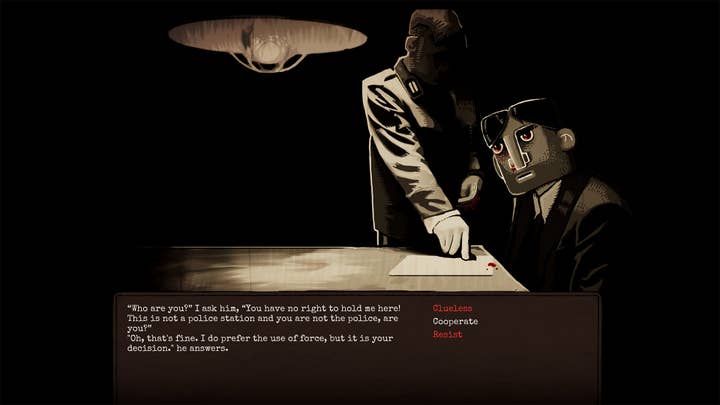
Fernando Reyes Medina, Latinx in Gaming
Fernando Reyes Medina joined Microsoft in 2013 as an intern, became a full-time software engineer a few years later in 2016, and is now a game designer on Halo Infinite. From his early career at the company, Medina has been advocating for the Latinx community both within the company and without.
As an engineer, Medina was involved with an internal group called Team Xbox Latinx, where he began to notice certain patterns and specific challenges that the Latinx community faced in trying to become game developers.
"Once I went through those hoops and started meeting more people in the community, I felt the responsibility to send the elevator back down and create meaningful and systemic change so others that want to follow a similar path to mine don't have to go through the same challenges, or have assistance and guidance along the way so they succeed in their pursuit," Medina says.
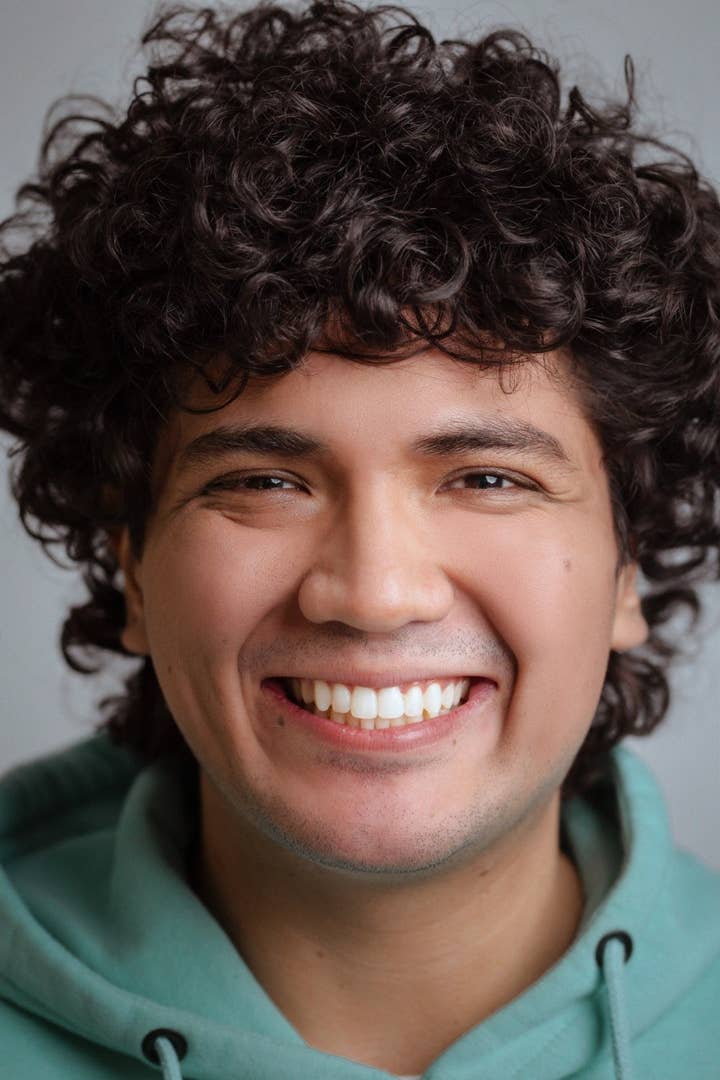
Medina is also the co-founder and LATAM director of Latinx in Gaming, a non-profit that works to increase Latinx representation across the entire industry. There, he is in charge of connecting the opportunities that the organization provides to everyone in the LATAM region, and developing a network with local community leaders that establishes the needs of each country and how Latinx in Gaming can help more effectively.
He attributes much of the success of Latinx in Gaming so far to his fellow co-founders, as well as the organization's LATAM country leads.
"Inclusion efforts are primarily volunteer driven, so I am very thankful of being surrounded by such an amazing, talented and selfless group of people that are constantly fighting for improving the industry for our community and paving the way for the next generation of Latinx creators," he says.
Medina says he wants to see more industry support for the Latinx community at large, specifically from publishers, venture capitalists, and investors looking for opportunities.
"And support Latinx in Gaming so we can support others," he concludes. "Since we have been doing this for a while now we understand the panorama, and we can help connect the right opportunity to the right person/company. And we can use all the help we can get, from financial support to being an ally and helping us spread the word of the wonderful and talented Latinx community."
David Parkin, Luggarrah
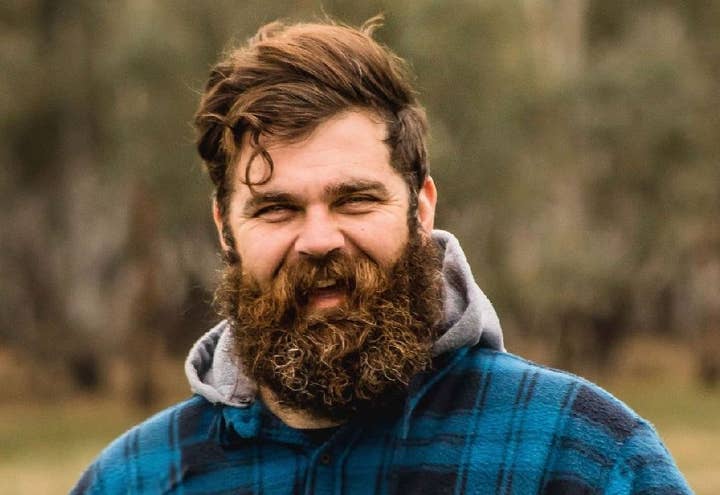
The talks at games conferences in Australia all begin in the same way -- with an acknowledgement of the indigenous people of the country, and the elders of the clans who once occupied the land on which its cities and towns are built. It is a small concession to the awful reality and legacy of colonialism.
Some people are doing more, however. With Luggarrah, managing director David Parkin is using technology to preserve Aboriginal culture, and educate students from diverse backgrounds through immersive and interactive learning programmes.
"Luggarrah devises and delivers cutting-edge technology events that appeal to youth -- and the whole of the community -- from regional and remote areas, as well as those who are disengaged or from diverse backgrounds," he says.
"We focus on engagement with Aboriginal and Torres Strait Islander students... These are usually under-served, and they need greater opportunities"
David Parkin
These events help to forge a link between technological and digital media industries -- video games included -- and people from Australian communities that would otherwise be missed by typical outreach strategies. Like everyone in Luggarrah's ownership group, Parkin is indigenous Australian himself, "a proud Trawlwulwuy man." Needless to say, the mission behind the organisation is deeply felt.
"Luggarrah ran six events in 2019, with 400 student participants from 23 different secondary schools, where 26 industry professionals presented an overview of the different industries that they were from," Parkin says. "The issues that we are trying to solve are re-engagement of youth with education using technology and games, and connection to country, place and people from a cultural perspective.
"Working in regional areas, we focus on engagement with Aboriginal and Torres Strait Islander students -- culturally and linguistically diverse and neurologically diverse cohorts [such] as these are usually underserved, and they need greater opportunities."
The Australian games industry has been supportive of Luggarrah's mission -- Parkin names Mighty Kingdom, Big Ant Studios, DragonBear Studios, and the Interactive Games and Entertainment Association among those who have helped the organisation -- but with more companies at its back, even more can be achieved.
"The best way for the industry to help support the work that Luggarrah is doing is to reach out and have a discussion, to see where they can best provide support and what needs to be considered going forward."
"Wulika," Parkin adds. "Finish."
Red Candle Games
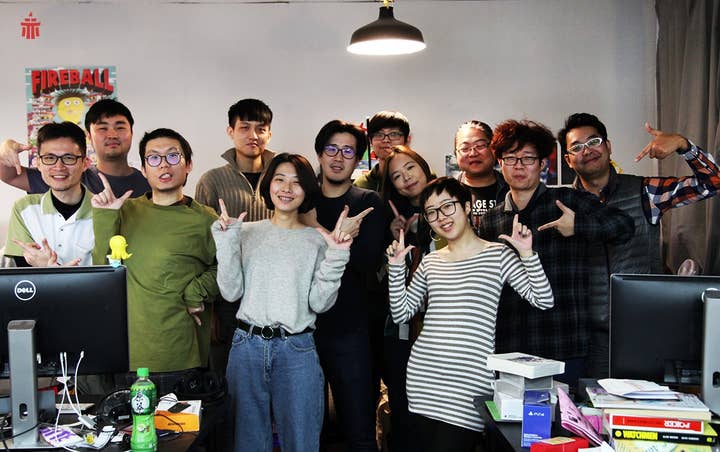
The Taiwanese indie studio Red Candle Games formed around a project: Detention, a survival horror title that received critical acclaim in 2016 for its resonant depiction of a complicated era in the country's history. Indeed, that exploration of Taiwanese identity was the force that first brought the team together.
The idea for Detention originated with a prototype created by Coffee Yao. Henry Wang and Light Wang were drawn to the project by the vivid recollections of Taiwan's history, and they were joined by Doy Chiang, Finger Chen, and Vincent Yang. The six developed the idea together, but working remotely, and Red Candle Games was founded when the group decided to find a co-working space.
"For Detention, at first Coffee simply wanted to replicate the nostalgic feelings of his school days from the 1980s," Red Candle says. "But since it's a horror story to begin with, while searching in our own history for inspiration, we felt that White Terror, a period when Taiwan was shadowed by dictatorship, could enhance the psychological horror aspects of our game. We thus changed the game setting to the 1960s Taiwan to fit the historical timeline"
"We grew up playing and getting influenced by video games, yet it's rare for us to stumble upon a title that represents our own culture"
Red Candle Games
Red Candle's second release, Devotion, did explore Taiwanese life in the 1980s, this time using the country's folklore and spiritual beliefs and rituals as a context for the horrific aspects of its narrative. The team speaks warmly of the strides made by the national indie development scene in the last few years -- mentioning Opus: Rocket of Whispers, Half Light, and Vigil: The Longest Night among many notable games -- but Red Candle was a pioneer in its simultaneous embrace and analysis of Taiwan's past.
Indeed, Red Candle was put forward for Game Changers for exploring an identity that "has been culturally and politically oppressed in some parts of the world" through works "not only of representation, but also of retrospection."
"We grew up playing and getting influenced by video games, yet it's rare for us to stumble upon a title that represents our own culture," Red Candle says. "For both Detention and Devotion, this thought inspired us to blend Taiwanese mythology, cultures, and local belief in the game to tell a story of Taiwan.
"We hope that for the players around the world, they can enjoy our work, and at the same time discover a bit about our country through the medium of the game."
Johana Riquier, The Overlooked Audience
Johana Riquier had never been a part of the games industry until she joined Unity Technologies, and it didn't take her long to recognize one of its problems.
"I started attending gaming conferences back in 2014, and the quasi-inexistence of people of colour attending the conferences shocked me," Riquier says. "I had the need to understand the reasons why we were so few, and what could be implemented to change the demographic landscape."
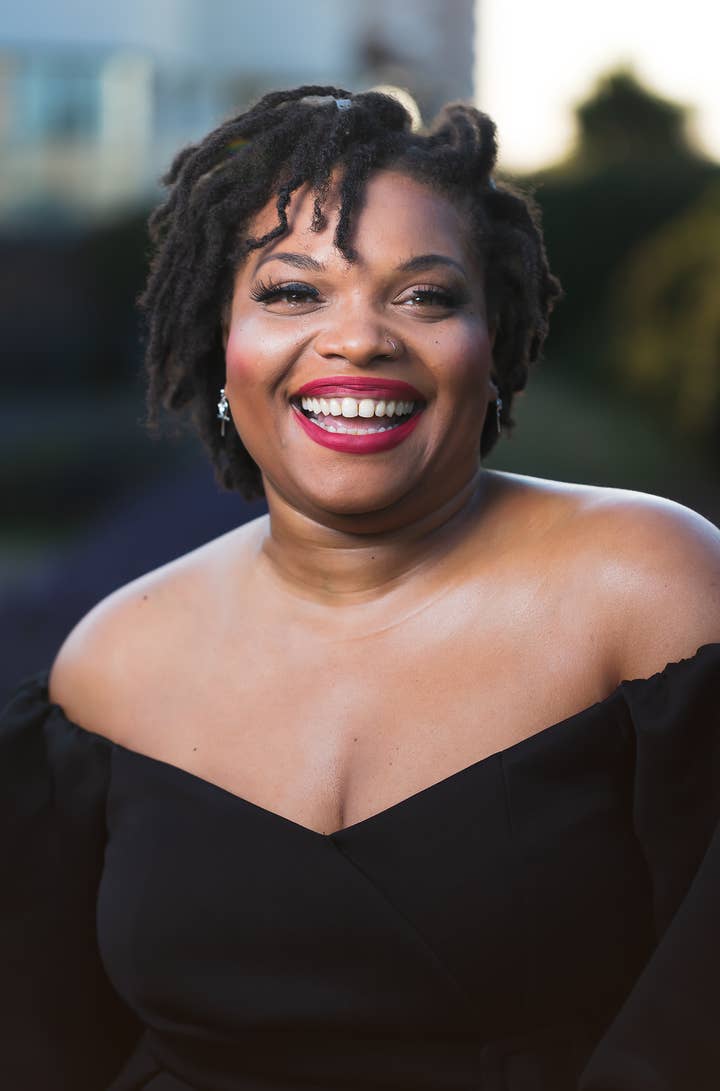
Riquier's first role at Unity had her working with studios in Western Europe and Africa, giving her insight into markets the industry has traditionally catered to as well as those it traditionally has not.
"Working at Unity helped me understand that the platform could make a difference in the lives of the less fortunate, as I had witnessed the impact on indies in Europe. I was meeting them on a regular basis, and they were all grateful."
Riquier worked on building out her network in the industry, and says she started to more aggressively champion African games development soon after, seeking out new African developers and connecting them not just with each other but with the wider European and American game industries.
While much of the work she does is not public-facing, Riquier has also been putting together The Overlooked Audience, a global initiative to raise awareness about Black women in the industry -- something that came about after speaking to a friend about the challenges of being a Black professional woman in gaming.
"I remember that several questions came at once in my head," Riquier says, "Is the experience of all Black women in the gaming industry the same? Do we really have a community to support for recruitment, retention, growth? Are we being recognised? How can we face our challenges, and celebrate our victories?"
In May, Riquier put out a call on Twitter looking for Black women in the industry to speak with for the project. She describes the response as unprecedented.
"I was gobsmacked," she says. "The work could start, and I started interviewing Black Women from around the globe."
A proper website compiling The Overlooked Audience and Riquier's other advocacy efforts is in the works, but some of the individual interviews can be read here, here, and here.
At the moment, Riquier is producing The Overlooked Audience on her own, but hopes to expand the project greatly, and interested volunteers (whether they're content curators, developers, community managers, tech developers) can email her at jr@johanariquier.net.
She also remains open to collaboration opportunities centered around women in and outside of tech, as well as African game development.
